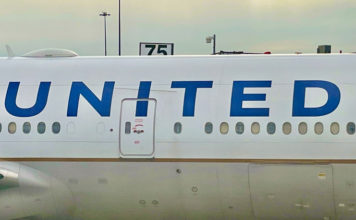
TravelingForMiles.com may receive commission from card issuers. Some or all of the card offers that appear on TravelingForMiles.com are from advertisers and may impact how and where card products appear on the site. TravelingForMiles.com does not include all card companies or all available card offers.
Rule #1 when considering a timeshare purchase: Take all emotion out of your decision making process. It’s very easy to be caught up in the beauty of a resort while you’re there and, if you happen to be considering a timeshare purchase at that resort, it can lead to some poor decision making. It’s not uncommon for people to get ‘vacation fever’ when having a great time away from home – the sun, sea, surf (and one or two Margaritas!) can make it feel like the resort you’re at is the place you’d love to visit time and time again, year in, year out – and that’s when people make mistakes
The most common mistake is when vacationers dive headlong into a timeshare purchase while still at the resort. They pay considerably more than they would have paid if they’d bought on the resale market and usually only find out once it’s too late to rescind the contract. But this isn’t the main issue. It’s not about how much you should be paying for a unit, it’s about whether you should be buying at all. It’s true to say that if you wish to vacation at most Marriott and Starwood timeshare resorts, often and in peak season, you are better off being an owner at those resorts. That, however, isn’t necessarily true for other times of year. If you’re considering a timeshare purchase, try following these basic guidelines:
1. Consider your long-term requirements concerning the time of year you are most likely to want to vacation. You may have children who travel with you now, but will they still be vacationing with you in five years time? A timeshare purchase is a long-term proposition, so buying with a short-term view is a recipe for future regrets.
2. Consider how much it would cost to rent a unit at your resort of choice, rather than buying, plus paying the yearly maintenance fees (you can use Vacation Smarter to check prices). You can rent at a lot of resorts, outside of peak season, for not much more than the maintenance fees you would pay if you owned the unit. The question you need to ask yourself is: Is tying up your capital with a purchase a good idea?
3. Consider, in the cold light of day, if you really want to come back to this resort year after year. Yes, you can exchange your unit or rent out your unit (and visit somewhere else with the proceeds) to get some variation but, with only some very specific exceptions, it is considered a poor idea to buy at a resort that you’re not happy visiting most years.
4. When you’ve considered these points, ask the advice of existing timeshare owners and see what they think. Log onto the Timeshare Users Group (it’s free), explain your plans and find out what people who have been through the same process make of your ideas.
5. Think about the advice you’ve been given, sleep on it, sleep on it some more and – only then – decide. Don’t ever rush your decision and don’t ever let someone hurry your thought process. We’ve all had sales people tell us that something is a “one time deal” – it rarely is.
Timeshares can be a fantastic way to vacation and most people who put the time in to do their research have wonderful experiences. If you do your due diligence and truly understand your options you’re unlikely to go wrong.



![[VIDEO] – Marriott’s Cypress Harbour Orlando – 2-Bed Villa Marriott's Cypress Harbour](https://travelingformiles.com/wp-content/uploads/2015/07/marriott-cypress-harbour-218x150.png)





![The ideal 4 card American Express Membership Rewards team [Updated] a glass door with a picture of a man](https://travelingformiles.com/wp-content/uploads/2021/06/Amex-Centurion-Lounge-SFO-featured-741-356x220.jpg)








[…] units are more affordable, perhaps you could rent rather than buy at the resort you like so much (see this article: “Do you really need to buy that timeshare?”) or perhaps timesharing isn’t right for you in the first […]